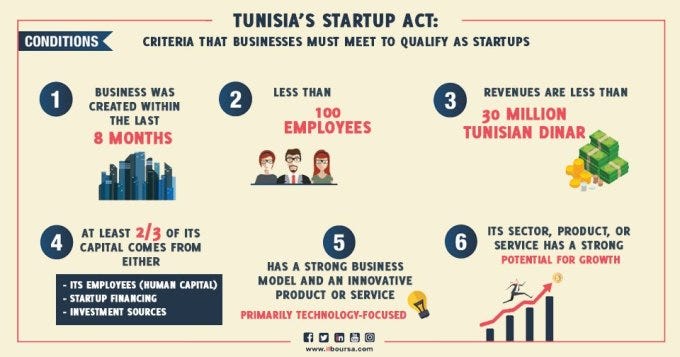Ghana may well be the next African country to get a Startup Act after Tunisia and Senegal. The country has officially launched the drafting process of the much-anticipated Ghana Startup Bill in Accra.

“We have formed a committee working on the Startup Bill and within two months, it will be ready for the cabinet’s consideration and Parliamentary approval,” Ghana’s Business Development Minister, Dr Ibrahim Mohammed Awa said after the third Ghana Business Awards Night on Friday, October 30. “When this bill is passed it means you can start a business, and for eight to 10 years you will not pay taxes. This is to encourage young people to put back the profit and expand the business.”
Here Is What You Need To Know
- The drafting committee is made up of notable bodies such as Ghana’s National Entrepreneurship and Innovation Program (NIEP), Ghana Chamber of Young Entrepreneurs (GCYE), Ghana Start-up Network (GSN), Ghana Hubs Network (GHN), i4Policy and Private Enterprise Federation (PEF) with funding and technical support from GIZ Make IT.
- A Technical Working Committee, made up of experts and the ecosystem enablers has equally been setup to champion the advocacy action for the development and enactment of the proposed Ghana Startup Act.
The Scope Of The Proposed Bill
The committee, which has a mandate to within three months engage widely with all relevant stakeholders to come out with a draft Ghana Start-up Act, will among other things deliberate to;
- Set up an incentive framework for the creation and development of Start-ups in Ghana to promote creativity, innovation, and the use of new technologies in achieving a strong added value and competitiveness at the national, regional, and district levels.
- Provide the legal backing for business starting and promotion of Start-ups for decent job and wealth creation, in accordance with the SDG 8, among others.
- The committee will then present its final work — the draft Ghana Start-up Act, to the NEIP and subsequently to the Ministry of Business Development, Ministry of Trade and Industry, Attorney General, Parliament of Ghana, and the Office of the President, after which they will run series of advocacy to ensure the Act is passed by Ghana’s legislature.
“Startups are the basics to create jobs and wealth in this country,” Dr Awa said. “We want to help start young people grow and this Startup Bill will be able to help them [youth] own their businesses and not look up to government for job; because we all know that the jobs are not in the public sector, they are in the private sector.
“So we [government] want to create an enabling environment in the private sector that can make it attractive to young people for them to engage in,” he emphasised.

Read also: Kenya Becomes Africa’s Latest Country To Consider A Startup Act. Here Is What It Looks Like
A New Website For Updates On The Drafting Journey
For enthusiasts and players within the Ghanaian startup ecosystem, a dedicated website for the Bill — www.ghanastartupact.org has been created. The committee intends to publish every stage of the journey on the website. Members of the public are therefore invited to share their inputs, comments, and recommendations via comment boxes and dedicated phone numbers which will be listed on the website.
“Passing this Act will help to a larger extend, curb the perennial youth unemployment and under-employment canker which has been a timebomb being sat on by the state Ghana,” the Project Coordinator, Mr. Sherif Ghana said.
The Era of Startup Act
The first specific startup law globally was passed in Italy in 2012, and Africa is increasingly catching on. Tunisia and Senegal are the only countries in Africa that have passed the Act, although plans are being mulled by Rwanda, Kenya, Ethiopia, Mali to follow suit.
Charles Rapulu Udoh

Charles Rapulu Udoh is a Lagos-based lawyer who has advised startups across Africa on issues such as startup funding (Venture Capital, Debt financing, private equity, angel investing etc), taxation, strategies, etc. He also has special focus on the protection of business or brands’ intellectual property rights ( such as trademark, patent or design) across Africa and other foreign jurisdictions.
He is well versed on issues of ESG (sustainability), media and entertainment law, corporate finance and governance.
He is also an award-winning writer
